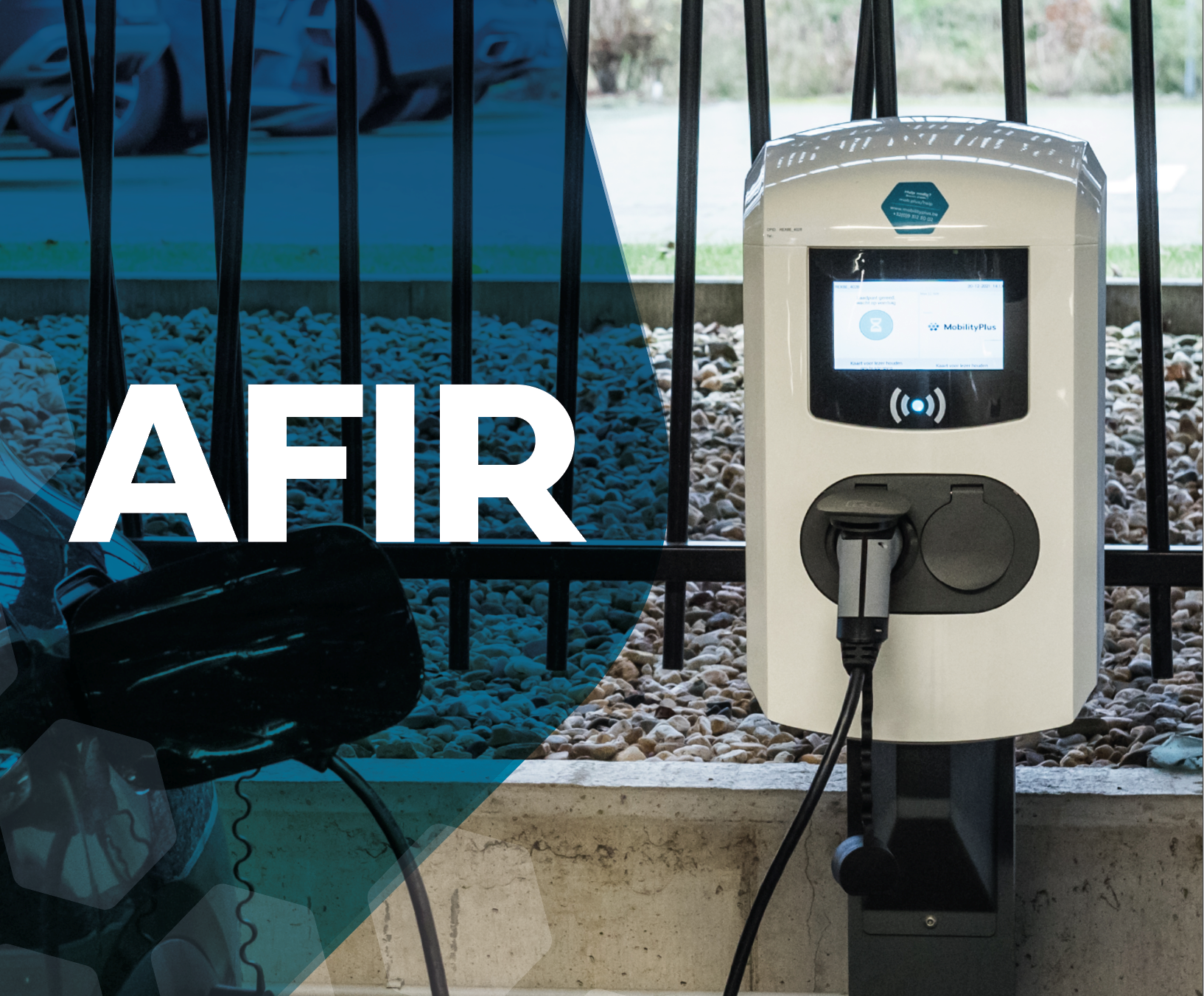New AFIR Legislation Affects Public Charging Stations: What You Need to Know

As of April 13th, the AFIR legislation has been officially implemented. This new set of regulations impacts public electric vehicle (EV) charging stations across Europe, marking a significant step in consumer rights and technology integration.
Scope of the AFIR Legislation
The AFIR legislation applies exclusively to public charging stations, which can be located on both public and private properties. It's important to note that charging stations provided by employers for employee use and managed privately by MobilityPlus do not fall under this public classification and thus are exempt from the AFIR requirements.
Key Elements of the AFIR Legislation
Price Transparency: Public charging stations must now provide clear pricing information directly to users. The charging station must now provide the user with price information such as price/kWh, starting price and price/hour. The aim is to ensure users are fully informed about the costs associated with charging their vehicles.
Classic Payment Methods: To accommodate more users, charging stations with a capacity of less than 50 kW are required to support secure online payment methods. Higher capacity stations, exceeding 50 kW, must include payment terminals, moving beyond the exclusive use of charge cards.
Implementing Price Transparency
The regulations enhance Belgium's existing consumer protection laws, demanding that all public charging stations adhere to these transparency guidelines.
Charging Stations with Displays: For models like the Alfen Pro, the consumer prices are displayed.
Charging Stations without Displays: Owners of these stations will need to manually indicate pricing. MobilityPlus recommends using signs or stickers to communicate this information clearly to users.
Be aware that the Economic Inspectorate will conduct targeted checks, and non-compliance could lead to fines. For those considering more controlled access, switching to private mode may be an option. For assistance with this transition, please contact us directly.
Adapting to Classic Payment Methods
This requirement affects all new public charging stations installed after April 13, 2024. Stations >50 kW that were installed before this date have until January 1, 2027, to comply. MobilityPlus is exploring various payment solutions, including standalone payment terminals and QR codes, with further details to be announced later this year.
For any questions or further information, please reach out to us.
We are here to assist you in navigating these new regulations and ensuring your charging infrastructure meets current legal standards.